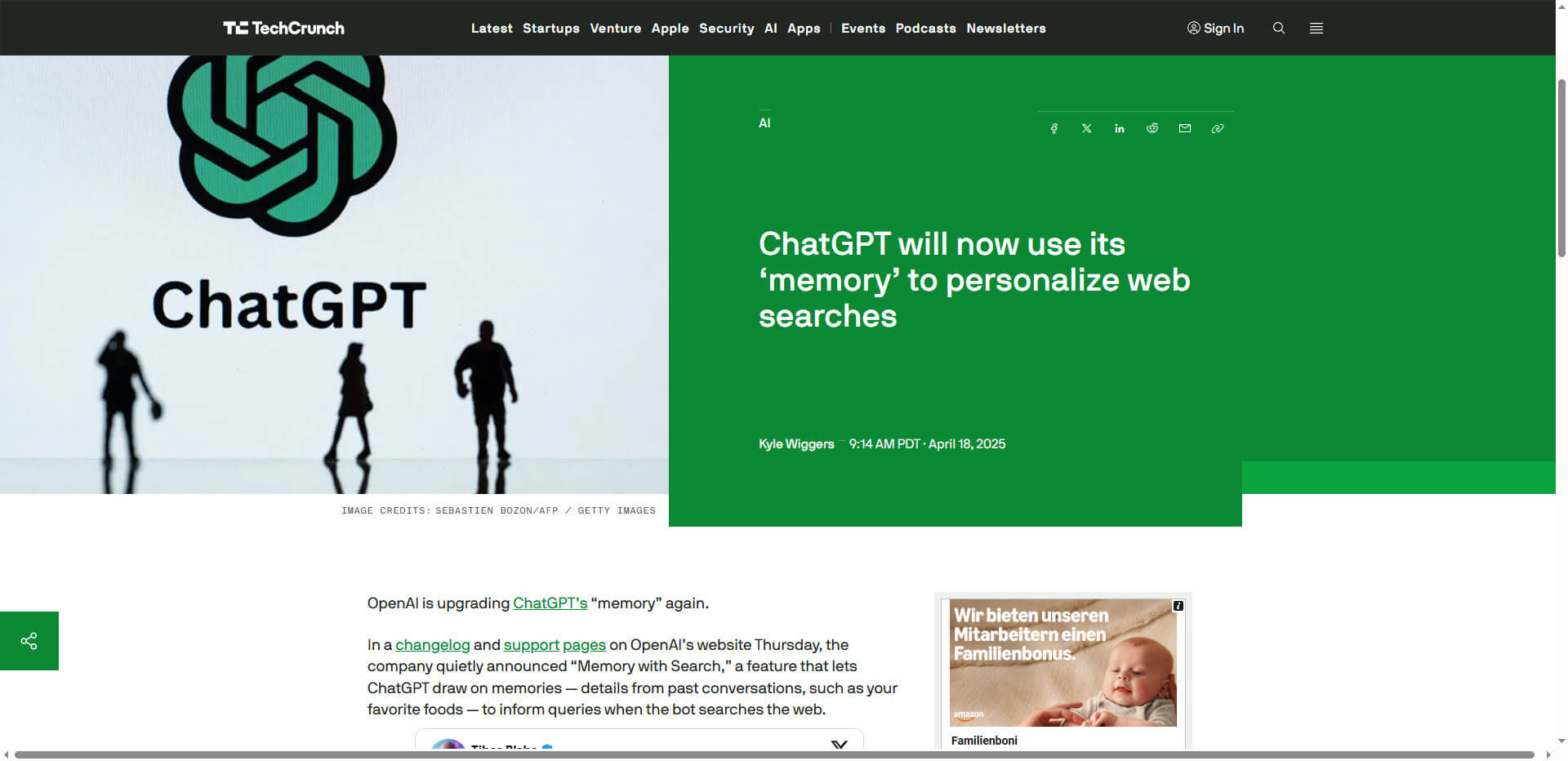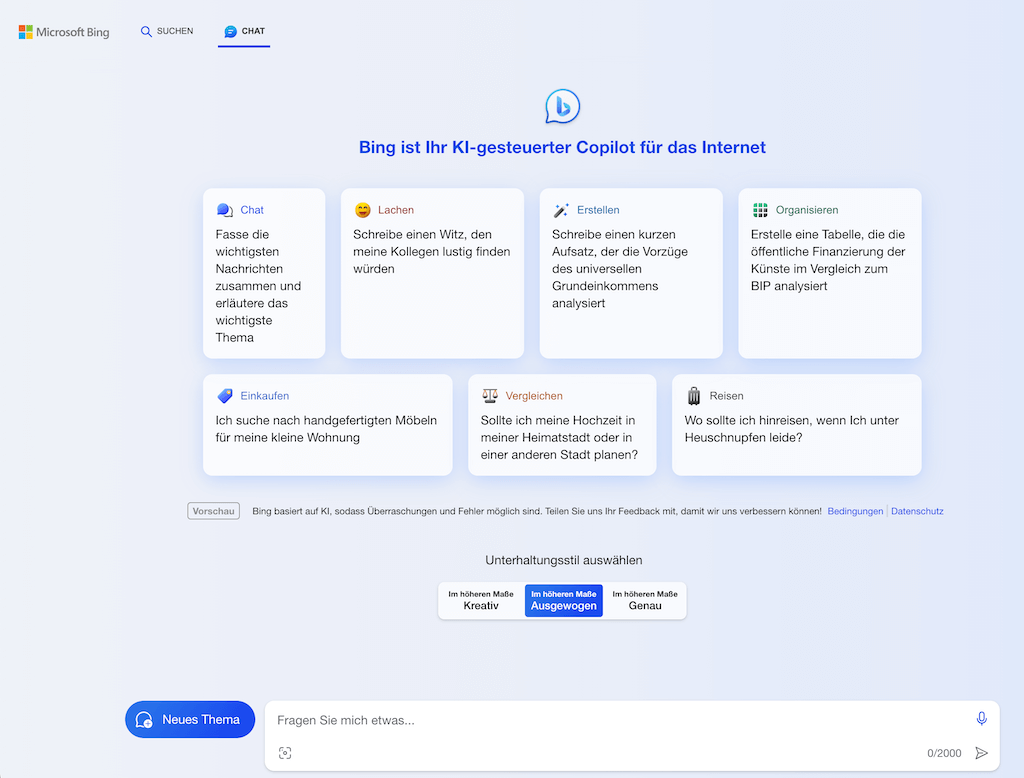The integration of context from previous conversations into search queries marks a significant advance in AI technology. With this new feature, OpenAI significantly enhances the personalization and practical value of its ChatGPT platform.
OpenAI’s recently introduced “Memory with Search” feature for ChatGPT allows the AI system to use previous interactions to customize web searches. For example, if a user has mentioned in a previous conversation that they are vegan in San Francisco, ChatGPT can remember this information and automatically search for “vegan restaurants in San Francisco” when asked a general question about restaurants. This contextualization makes search results much more relevant and saves users from having to repeatedly explain their preferences.
The update strategically positions OpenAI against competitors such as Anthropic’s Claude and Google’s Gemini, which are developing similar functions but still have some catching up to do when it comes to integrating memory functions into search processes.
Technical basics of memory integration
The “Memory with Search” function analyzes previous conversations to create a dynamic user profile. This profile includes not only content preferences, but also communication styles and recurring information needs. When a search query is made, the system identifies relevant stored information and reformulates the original query to provide more precise results.
This technology goes beyond simple keyword storage. ChatGPT can make semantic connections between past utterances and current queries. A vague query such as “tech events near me” is automatically refined to “blockchain conferences in London 2025” if the user has previously expressed an interest in blockchain technology.
Read also: GPT-5.3 Codex: The autonomous coding agent is here
Data protection and user control
Despite the benefits, the new function raises data protection issues. OpenAI has implemented control mechanisms: Users can deactivate the memory function in the settings, although this will result in the deletion of all stored data. It is also worth noting that the function is not available in the European Economic Area, Switzerland and the UK for the time being, presumably due to GDPR compliance checks.
Compared to competitors, ChatGPT still lacks transparency in memory management. While Google Gemini allows users to view and edit stored data, OpenAI does not offer comparable granular controls. This has led to calls for better ways to delete specific memories without losing the entire conversation history.
Impact on search engine optimization and digital marketing
Personalization through “Memory with Search” fundamentally changes the dynamics of traditional SEO strategies. Websites optimized for generic keywords could lose visibility as ChatGPT prioritizes hyper-relevant results. For example, a vegan food blog in San Francisco could rank higher for localized queries without explicitly using “San Francisco vegan restaurants” as a target keyword.
Summary
- OpenAI integrates past conversation content into web searches with “Memory with Search” to deliver personalized results
- The feature creates a dynamic user profile based on preferences, location and communication style
- ChatGPT can automatically rephrase search queries and enrich them with relevant details from previous conversations
- The update strengthens the competitive position against Claude and Gemini in the field of personalized AI assistance
- Users have the option to disable the feature, with regional restrictions in Europe
- The technology will change SEO strategies as contextually relevant content becomes more important
Source: TechChrunch







